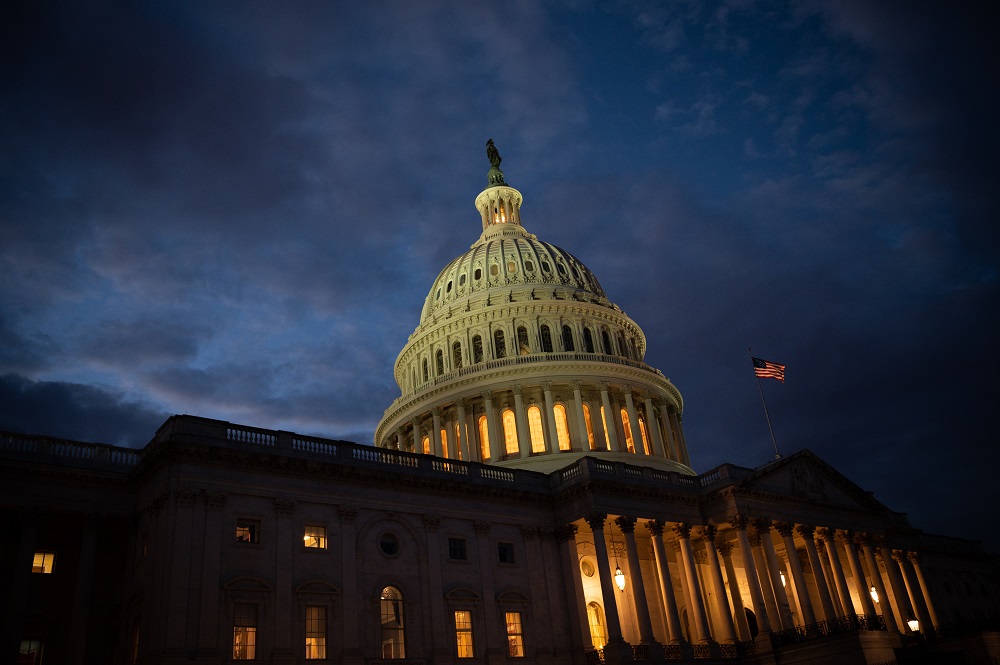
April 26, 2024
Washington, District of Benefit Cliffs
As the welfare state expands while policymakers struggle to contain its costs, one unintended result is the creation of significant benefit cliffs. A little-noticed September 2023 report authored by Elias Ilin and Alvaro Sanchez of the Federal Reserve Bank of Atlanta (“Mitigating Benefits Cliffs for Low-Income Families: District of Columbia Career Mobility Action Plan as a Case Study”) explains…

April 10, 2024
The Political Landmines Buried in the Latest Jobs Report
CNN on Friday dubbed the latest monthly jobs report a “blowout,” pointing to 303,000 net new jobs created in March. President Joe Biden immediately claimed credit, saying the report “marks a milestone in America’s comeback,” as it indicates a total of “15 million jobs created since I took office.” Meanwhile, the latest data confirm that most…

April 8, 2024
We Still Don’t Know How Much Taxpayers Lost Due to Pandemic Unemployment Assistance Fraud
One of the first programs Congress created to assist Americans thrown out of work by the pandemic was the unprecedented Pandemic Unemployment Assistance (PUA) program. PUA expanded unemployment benefits to millions of independent contractors, the self-employed, and others never before eligible for regular Unemployment Insurance (UI) checks. But in some of the worst policy choices of…

April 4, 2024
Biden’s ‘Tax Cut’ Rhetoric Is Really Just Code For Benefit Increases
President Biden’s rhetoric about his new budget proposal suggests it is full of tax relief for working families. For example, one White House fact sheet is headlined “The President’s Budget Cuts Taxes for Working Families and Makes Big Corporations and the Wealthy Pay Their Fair Share.” Taking from the rich to give more to working (and even non-working) families is a…

March 25, 2024
Families Slip Back Into Poverty After Pandemic-Era Child Tax Credit Expires
Watch the full video here. During the pandemic, lawmakers dramatically, but temporarily, expanded the social safety net, including more money for families with children. The impacts of those changes are still being felt and debated to this day. Amna Nawaz and producer Sam Lane report on that for our series, America’s Safety Net. Read the…

March 11, 2024
How Many Forms of “Wage Insurance” Do We Need, Exactly?
One of the most controversial policies included in H. R. 7024, the “Tax Relief for American Families and Workers Act” that passed the House on January 31, is a provision that would expand the “lookback” to determine eligibility for the child tax credit (CTC). Under current law, adults claiming the CTC for a tax year…

March 7, 2024
Growing Congressional Dysfunction Will Worsen Our Fiscal Problems
Few were surprised when deposed House Speaker Kevin McCarthy (R., Calif.) retired in December. While Republican leaders tend to exit quickly after losing committee gavels or leadership posts, the additional departure of other respected senior lawmakers in both parties is damaging legislative capacity on the Hill. Congress is losing the sort of policy-making veterans it needs to craft and pass important legislation. Their reasons for leaving vary and often include Congress’s general inability to pass needed legislation. That dysfunction is evident…
March 4, 2024
Exploring America’s Social Safety Net And The Political Fights Around It
View the full video here. Our new series, “America’s Safety Net,” is focused on the complex web of programs meant to help Americans in need. Over the coming weeks, we’ll take an in-depth look at the different forms of welfare in the U.S. Up first, Geoff Bennett and producer Sam Lane spend some time explaining…

February 29, 2024
Recalling Pandemic Lessons on “Self-Certifying” Eligibility
Sometimes what is left unmentioned can be far more important than what is said. A good example is obscure guidance issued last week by the US Department of Labor (DOL) encouraging workforce programs to allow beneficiaries to self-certify their eligibility. That guidance directly affects a handful of programs with limited funding that offer a variety of employment-related…

February 27, 2024
Options for Improving the Child Tax Credit Provisions in H.R. 7024, the Tax Relief for American Families and Workers Act of 2024
H.R. 7024, the Tax Relief for American Families and Workers Act of 2024, passed the House on January 31, 2024 and now faces an uncertain fate in the Senate. The bill is intended to offer something for both Republicans and Democrats—business tax cuts and an expansion of the Child Tax Credit (CTC). But this bargain—which…